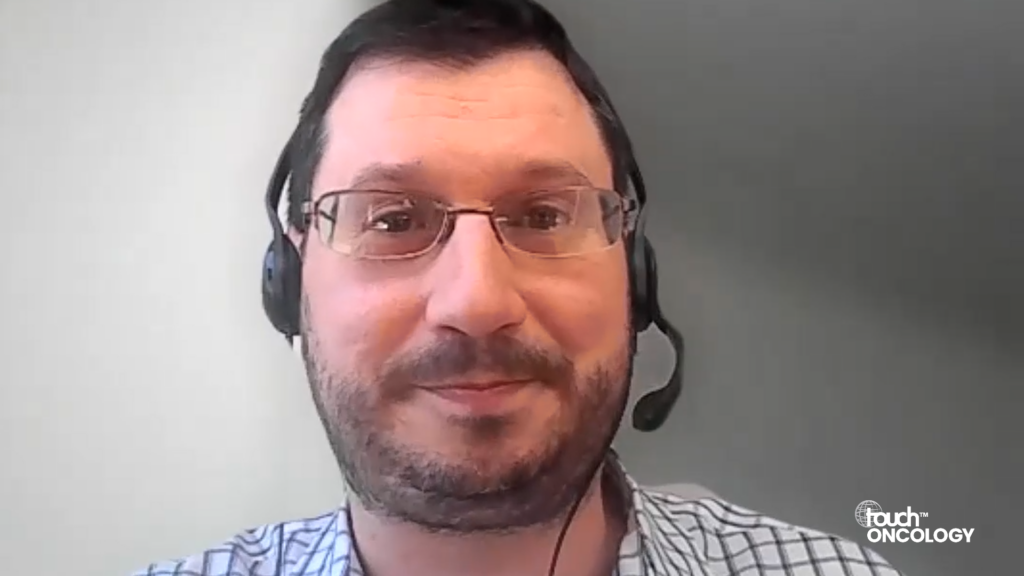Penile squamous cell carcinoma (SCC) is rare in the developed world, with 2,080 new cases and 410 deaths in the US each year.1 However, the disease is much more prevalent in developing countries, where it constitutes a significant public health hazard. Countries that have economic disparities or low rates of circumcision, such as Brazil, India and African nations, have the highest reported incidence of malignant disease with rates as high as 10%.2,3 By contrast, countries such as Israel, where circumcision is widely performed, have the lowest incidence in the world at <0.1% of all penile malignancies.3 In addition, there are significant demographical, racial/ethnic, social and economic disparities that exist in terms of both the incidence and survival rates of penile cancer.4 About half of all cases of penile SCC are caused by infection with human papillomavirus (HPV).5 Around 60% of all cases are diagnosed at a local stage with early locoregional spread.6
Although surgery alone can cure approximately 80% of patients with limited lymph node involvement,7,8 there are few therapeutic options for patients with advanced penile SCC and treatment involves systemic chemotherapy, radiation therapy or chemoradiation. Given the rarity of penile SSC, there are no clinical trial data to define the optimal treatment regimen and therefore evidence of efficacy is low.9,10 Patients with metastatic penile SCC who fail to respond to chemotherapy or experience recurrence after chemotherapy have very poor outcomes, with a median overall survival time of less than 6 months.11
Until recently we have had limited understanding of the genomic characteristics of penile SCC, with a lack of published data. A study presented at the American Society for Clinical Oncology Genitourinary Cancers Symposium (ASCO GU), which was held on 14–16 February 2019 in San Francisco, California, US, was the largest whole exon sequencing analysis among patients with penile SCC to date.12 The study involved 34 patients with penile SCC (median age: 61 years; range: 39–83), all of whom had primary tumours or metastatic lesions sufficient for whole exon sequencing. Patient information and tumour and surgical characteristics were available through the MD Anderson prospective registry. Genomic DNA from both fresh–frozen macrodissected tumours and paired-normal penile tissues were analysed by whole exon sequencing. Results showed that penile SCCs are genomically similar to other HPV–related SSCs. The tumour mutation burden in penile SCC appears to be similar to that of other cancers including lung and head and neck cancers. Eight of the most frequently altered genes in penile SCC (NOTCH1 [35%], TP53 [35%], CDKN2A [24%], PIK3CA [21%], CASP8 [21%], FAT1 [18%], FBXW7 [15%] and EP300 [12%]) were significantly mutated in other SCC tumour types. All eight genes were mutated in head and neck SCC and five were mutated in cervical SCC. Three genes – CASP8, FXBW7 and EP300 – are only known to be drivers in these tumour types. Mutations in TP53 were seen in HPV-negative tumours but were not found in HPV-positive tumours. EP300 mutations were associated with advanced primary tumour stage.12 The presence of lymph node involvement is the most important prognostic indicator for penile SCC;13 however, this study did not identify unique mutations associated with lymph node status.12
These findings have important implications for the treatment of patients with penile SCC. In particular, therapies that target the Notch and PI3K/AKT/mTOR pathways warrant investigation. Notch signalling plays a key role in cell development by controlling proliferation, differentiation, angiogenesis and apoptosis, and a dysregulated Notch pathway has been associated with cellular transformation and tumorigenesis.14 Notch-directed therapeutic strategies are currently being investigated in a number of tumour types.15 In addition, since immune checkpoint inhibitors targeting programmed cell death–1 (PD-1) and its ligand (PD-L1) have proven effective in the treatment of recurrent and metastatic head and neck SCC16,17 and lung SCC,18 this may be a promising approach for patients with penile SCC. A number of ongoing trials are evaluating immune checkpoint inhibitors, including nivolumab, pembrolizumab and avelumab, in advanced penile SCC.19
While larger studies are needed to validate these findings, the genomic characterisation of penile SSC is a significant advance that is likely to guide future clinical trials to develop novel precision medicine approaches for a disease with few therapeutic options.
References
1. American Cancer Society.Key Statistics for Penile Cancer. 2019. Available at:www.cancer.org/cancer/penile-cancer/about/key-statistics.html (accessed 27 March 2019).
2. Misra S, Chaturvedi A, Misra NC.Penile carcinoma: a challenge for the developing world.Lancet Oncol. 2004;5:240–
3. Douglawi A, Masterson TA.Updates on the epidemiology and risk factors for penile cancer.Transl Androl Urol. 2017;6:785–
4. Sharma P, Zargar-Shoshtari K, Pettaway C,et al.Disparities in penile cancer. Cancer Control. 2016;23:409–
5. Hernandez BY, Goodman MT, Unger ER, et al. Human papillomavirus genotype prevalence in invasive penile cancers from a registry-based United States population.Front Oncol.2014;4:9.
6. Barnholtz-Sloan JS, Maldonado JL, Pow-sang J, et al. Incidence trends in primary malignant penile cancer.Urol Oncol.2007;25:361–
7. Srinivas V, Morse MJ, Herr HW, et al. Penile cancer: relation of extent of nodal metastasis to survival.J Urol.1987;137:880–
8. Bada M, Berardinelli F, Nyirady P, et al. Adherence to the EAU guidelines on Penile Cancer Treatment: European, multicentre, retrospective study.J Cancer Res Clin Oncol.2019; doi: 10.1007/s00432-019-02864-9. [Epub ahead of print].
9. Hakenberg OW, Comperat EM, Minhas S, et al. EAU guidelines on penile cancer: 2014 update.Eur Urol.2015;67:142–
10. Delacroix SE Jr., Pettaway CA.Therapeutic strategies for advanced penile carcinoma.Curr Opin Support Palliat Care. 2010;4:285–
11. Wang J, Pettaway CA, Pagliaro LC.Treatment for metastatic penile cancer after first-line chemotherapy failure: analysis of response and survival outcomes.Urology. 2015;85:1104–
12. Chahoud J, McCormick BZ, Netto F, et al.Penile squamous cell carcinoma is genomically similar to other HPV-driven tumors.J Clin Oncol. 2019;37(suppl 7S):Abstr 505.
13. Ornellas AA, Nobrega BL, Wei Kin Chin E, et al.,Prognostic factors in invasive squamous cell carcinoma of the penis: analysis of 196 patients treated at the Brazilian National Cancer Institute.J Urol.2008;180:1354–
14. Man CH, Wei-Man Lun S, Wai-Ying Hui J, et al. Inhibition of NOTCH3 signalling significantly enhances sensitivity to cisplatin in EBV-associated nasopharyngeal carcinoma.J Pathol.2012;226:471–
15. Platonova N, Lesma E, Basile A, et al. Targeting notch as a therapeutic approach for human malignancies.Curr Pharm Des.2017;23:108–
16. Ferris RL, Blumenschein G Jr, Fayette J, et al. Nivolumab for recurrent squamous-cell carcinoma of the head and neck.N Engl J Med.2016;375:1856–
17. Seiwert TY, Burtness B, Mehra R, et al. Safety and clinical activity of pembrolizumab for treatment of recurrent or metastatic squamous cell carcinoma of the head and neck (KEYNOTE-012): an open-label, multicentre, phase 1b trial.Lancet Oncol.2016;17:956–
18. Fan Y, Mao W.Immune checkpoint inhibitors in lung cancer: current status and future directions.Chin Clin Oncol. 2017;6:17.
19. Eid R, Nemr E, Haddad FG, et al. Do checkpoint inhibitors provide new hope for management of metastatic penile carcinoma?Future Oncol.2018;14:677–












